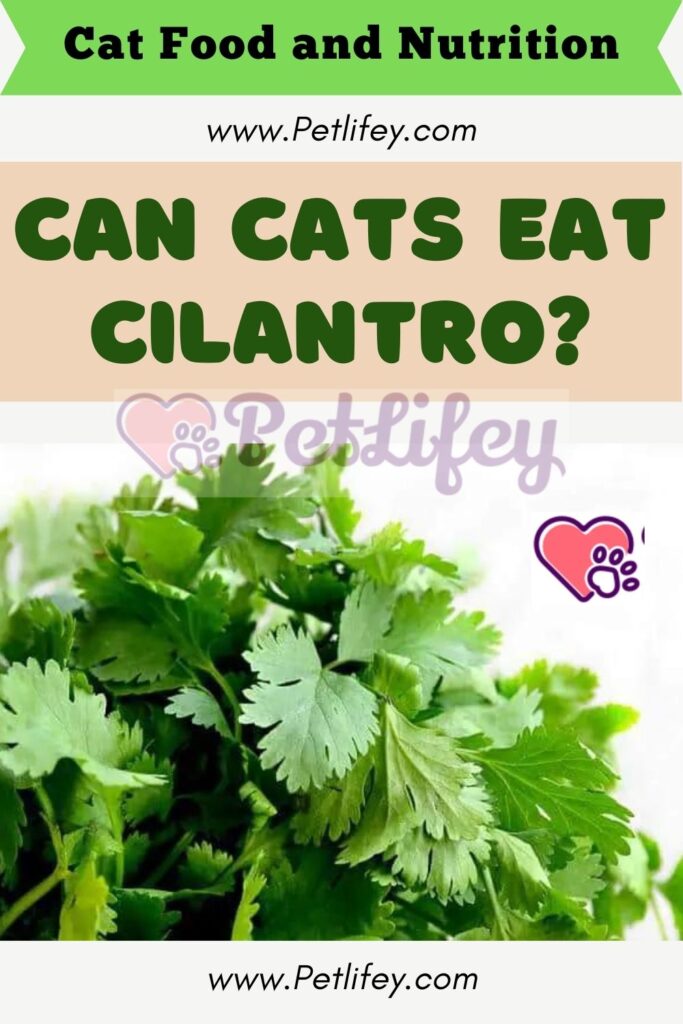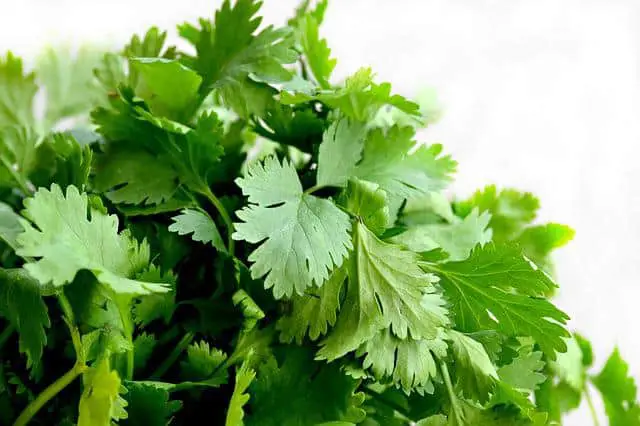
Spice used by many in cooking and rich in properties, but can it be added to cat’s food? Let’s see if the cat can eat coriander.
Living with a furry friend means paying attention not only to his diet, but also to ours, especially if the feline in question tends to ask or steal our dishes.
For this reason it is very important to know what are the ingredients that our four-legged friend can or cannot eat. In this article we will see if the cat can eat coriander, a widely used spice in our kitchens.
Can cats eat cilantro?

Coriander is a herb widely used not only in Italian cuisine, but also in Mexican and Indian cuisine.
The seeds of this herb, which when crushed make up the spice of coriander, and the fresh leaves of this herb can be added to dishes such as: meat, soups, juices, vegetables, stews and salads.
Coriander is rich in nutritional properties and beneficial for the human being. In fact, the leaves of this plant are rich in vitamins A, C, E and K and small quantities of minerals.
While coriander seeds feature small amounts of vitamins and more fiber, magnesium, iron, manganese, calcium and selenium.
But can these nutritional values be beneficial for our four-legged friend? Can the cat eat coriander or is coriander harmful to cat?
According to experts, cilantro is not a poisonous or toxic herb for our furry friend, so it can be eaten by the latter without problems. However, it is advisable to pay attention to the quantities.
Benefits and harms of coriander in cats
If given in minimal quantities, cilantro could be beneficial for our four-legged friend. In fact, the presence of vitamin A in this plant can be useful to improve night vision in the cat and to make the cat’s coat shiny and healthy.
Vitamin E improves feline vision, fertility, muscle function and the immune system. Vitamin C is useful to the cat for the synthesis of collagen and finally vitamin K is useful for blood coagulation.
As previously mentioned, coriander is also high in fiber, and although the cat is an obligate carnivore, the fibers of this plant could be useful for the cat for digestion. Furthermore, coriander is an excellent antioxidant and anti-inflammatory.
However, in addition to the benefits, there are also risks to the feline taking coriander. This only occurs if the cat eats a large amount of this grass.
In fact, in this case the cat could contract a cardiac arrhythmia or gastrointestinal pathologies. In addition, the cat may also have the following disorders:
- Diarrhea in cats
- Vomiting in cats
In this case it is advisable to contact your veterinarian. It is also good to remember that not all cats are the same, so if your kitty does not appreciate the taste of this herb, avoid offering it to him.
How and how much to give coriander to the cat
Having established that the cat can eat coriander, it is advisable to know how and how much of this herb it is possible to give to the cat.
Felines can eat coriander both fresh and dried, while it would be advisable to avoid the seeds of this plant as our four-legged friend could have complications in digesting them.
As for the quantities, it is advisable to offer the kitty small quantities of this herb, so that the latter cannot cause problems in the stomach of the feline.
Finally, we can let the cat eat the leaves from the plant directly, or chop the leaves and add them to the cat’s food, a maximum of 2 times a week is recommended. Before adding this herb to your feline’s diet, it is always advisable to ask your veterinarian for more information.






